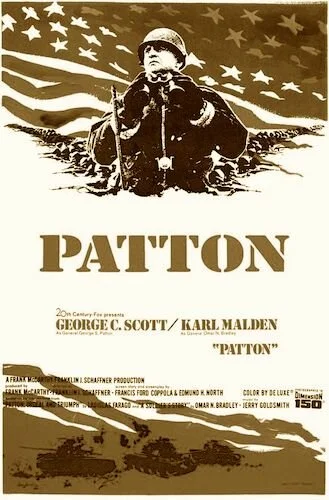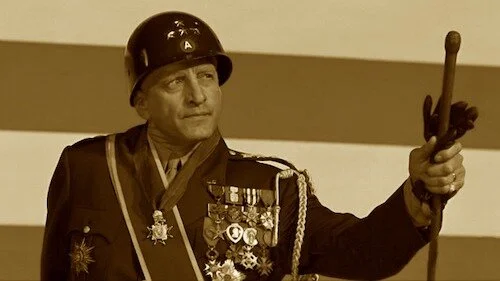Patton
This review is a part of the Best Picture Project: a review of every single Academy Award winner for the Best Picture category. Oliver! is the forty third Best Picture winner at the 1970 Academy Awards.
Seeing as the Academy Awards is now in favour of the New Hollywood movement (with award wins for In the Heat of the Night and Midnight Cowboy), we now stumble upon a bit of a truce between the Old Hollywood ways and the new era: Franklin J. Schaffner's Patton. It's a war epic that contains the textbook ambitions of the greats before it, all while embracing the new ways of mainstream filmmaking (the profanity, the moral ambiguity, the graphic content). It's like the film couldn't have come at a better time, especially when it comes to how the infamous general operated. Patton was old fashioned, and he was facing new recruits and their own characteristics. Naturally, Patton as a film becomes a marathon between brutal strength, and sensitive understanding.
Who better to play the big George P. than the actor George C.? George C. Scott's greatest performance was as General Patton, because both men stuck to their own ways and bombarded through any opposition (for better or for worse). Scott famously rejected his Best Actor win for this film, comparing the Oscars to a "meat parade"; he had a point to some extent, seeing as his role has surpassed the test of time, accolade or not. From the very first image of Patton in front of the American flag, you're hooked on every word this guy says. Franklin J. Schaffner's direction is still fantastic, but any poorer lead would have made Patton a glorified chore. Luckily, that is not the case, as Patton ended up being a brutish mission of one man, combatting the changes of the world.
Despite being a well rounded film, Patton was still George C. Scott’s show.
When it comes to the war sequences, Schaffner's talents have rendered peak levels of battle choreography; the kind of stunts and effects that reinstil your faith in movie magic. Paired up with the explosive screenplay by Francis Ford Coppola and Edmund H. North, Patton is an all-out onslaught of war time anxiety. This narrative marriage shows why Patton loved to serve his nation, as well as the new generation's rational fears during combat. You won't find many war films that can blend support and reservation quite like this.
It's difficult to say anything else about Patton. It maintains its greatest strengths consistently for three hours, and never really wavers. Even General Patton staring his fates in the face is something he does his usual way: with zero concern. That's exactly how Patton as a film operates, and it makes it the perfect crossover epic between the worlds of Hollywood. It confidently picks up where the previous epics left off, and gives zero care about how it will be perceived by purists in a new age. It encompasses both sides perfectly. We were already making our way into a new chapter of American filmmaking, but Patton was a much needed final farewell to the story thus far.
Andreas Babiolakis has a Masters degree in Film and Photography Preservation and Collections Management from Ryerson University, as well as a Bachelors degree in Cinema Studies from York University. His favourite times of year are the Criterion Collection flash sales and the annual Toronto International Film Festival.






